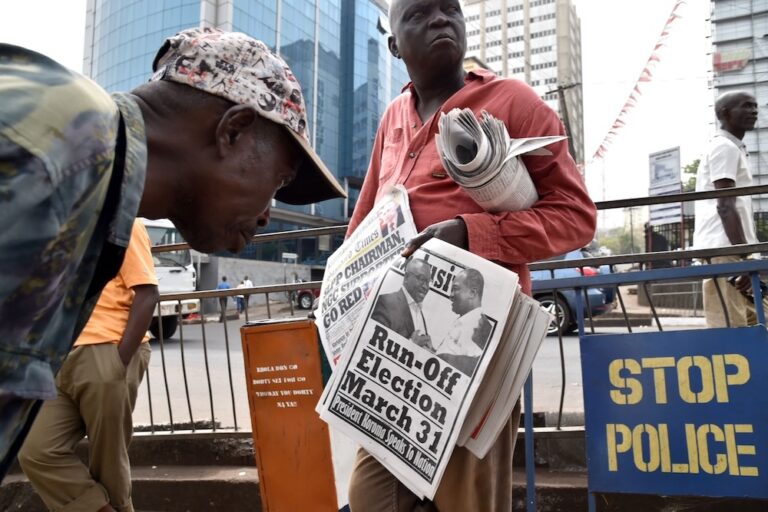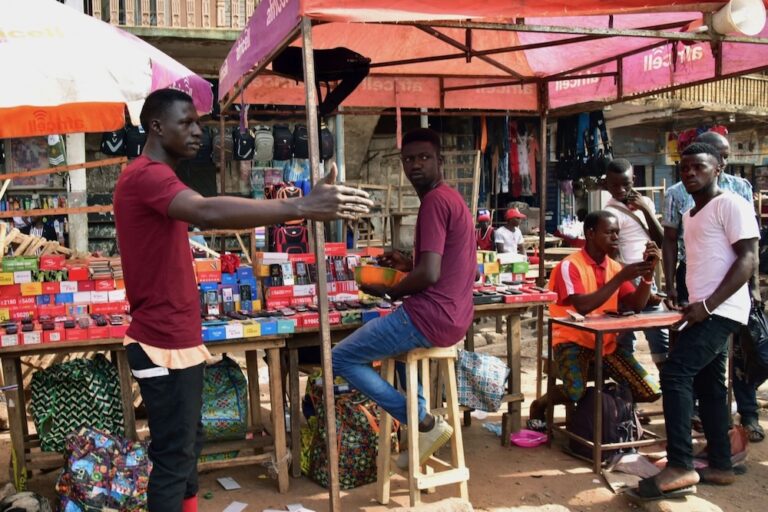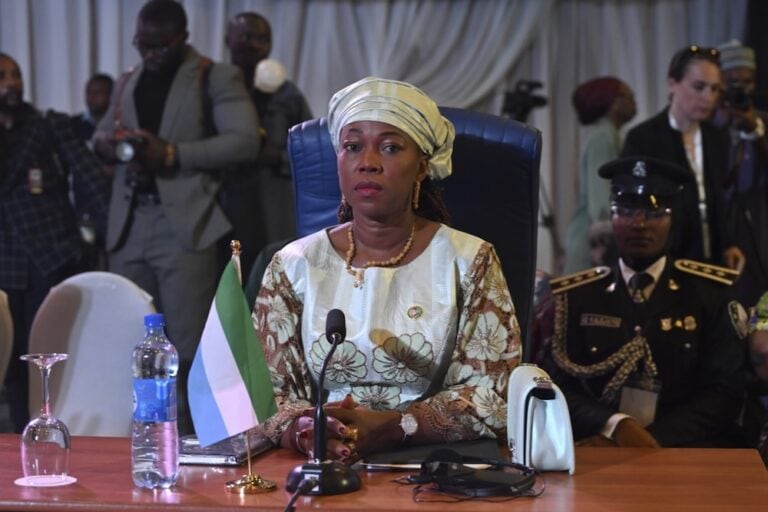(MFWA/IFEX) – The following is a 3 March 2008 MFWA press release: LAWSUIT SEEKS GREATER FREEDOM OF EXPRESSION IN SIERRA LEONE Journalists’ Group Challenges Libel Laws Used to Silence Critics Accra and New York, March 3, 2008 – Journalists in Sierra Leone are challenging laws that criminalize free speech and authorize prison terms of up […]
(MFWA/IFEX) – The following is a 3 March 2008 MFWA press release:
LAWSUIT SEEKS GREATER FREEDOM OF EXPRESSION IN SIERRA LEONE
Journalists’ Group Challenges Libel Laws Used to Silence Critics
Accra and New York, March 3, 2008 – Journalists in Sierra Leone are challenging laws that criminalize free speech and authorize prison terms of up to seven years for those who criticise the government.
The Sierra Leone Association of Journalists (SLAJ) filed the lawsuit with the country’s Supreme Court: last week, seeking to overturn Sierra Leone’s criminal libel and false news laws. The laws allow prison sentences for expression that “excite(s) disaffection” against the government or “injure(s) the reputation” of the government or individual officials.
“These laws prevent free expression and are often abused by those in power to silence critics,” said Kwame Karikari, director of the Media Foundation for West Africa (MFWA). “The Supreme Court should remove this gag on the people’s voice.”
The suit is the first direct challenge in West Africa to the criminal libel and false news laws that are common throughout much of the region. The Open Society Justice Initiative, the Freetown-based Society for Democratic Initiatives, and the Accra-based Media Foundation for West Africa, a media freedom watchdog, provided assistance with the suit.
The SLAJ’s brief describes the repressive effect of the laws, which can provide severe criminal penalties even for true statements and entirely peaceful expression. Among the examples cited in the brief is that of Julius Spencer, a journalist who was jailed for several months after writing about the involvement of Sierra Leonean army officers in illegal diamond deals. The brief (available at http://www.justiceinitiative.org/db/resource2?res_id=104048) points out that many cases prosecuted under the laws never reach trial but are used simply to detain and intimidate government critics.
“Anti-expression laws like these are antiquated remnants of the colonial period,” said Chidi Odinkalu, the Justice Initiative’s senior legal officer in Africa. “They have no place in today’s Africa.”
The Supreme Court is expected to set a date for introductory arguments shortly.
The SLAJ is being represented by the Freetown-based law firm of Yada Williams and Associates.
Click here to read the full brief: http://www.justiceinitiative.org/db/resource2?res_id=104048.


